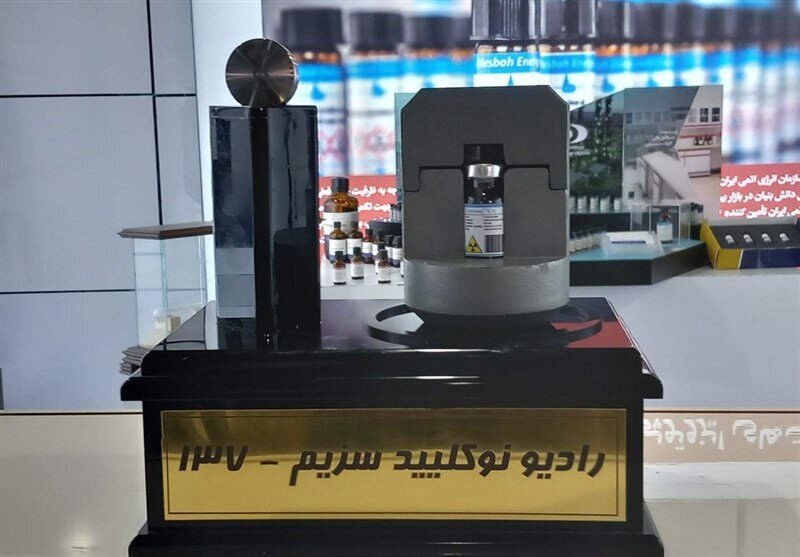Iran’s nuclear organization unveils production of radionuclide

TEHRAN- The Atomic Energy Organization of Iran (AEOI) on Sunday unveiled a domestic radionuclide with potential in a variety of disciplines.
Iranian nuclear specialists have successfully produced Cesium-137 radionuclide, which was previously imported.
The material, which has a variety of industrial and medicinal uses, was unveiled by Mohammad Eslami, the chief of the AEOI, during an expo in Tehran.
Radionuclides (or radioisotopes) are radioactive atomic variations of elements. They are mostly produced by exposing suitable target materials to the neutron flux in a nuclear reactor for an appropriate time.
Cesium-137 radionuclide has a half-life of 30 years and is found mostly in spent nuclear fuel and radioactive waste.
Radiation devices, brachytherapy, radiotherapy, calibration springs, and numerous industrial gauge types all make use of it.
Additionally, the substance is necessary for radiating food, cosmetics, blood, and other products.
Iran’s nuclear program has advanced significantly in recent years despite Western sanctions and threats. Tehran has often reaffirmed that its nuclear program is exclusively intended for civilian uses.
The production of Cesium-137 radionuclide was praised by the Iranian nuclear director as a priceless nuclear accomplishment that ended the nation’s dependency on imports of the chemical substances.
According to him, the material could be employed in oil and gas fields, industrial instrumentation systems, and other domains.
IAEA deputy chief to visit Iran
Speaking at the event, Eslami said that Iran’s nuclear sector directly impacts people’s lives.
He also said in addition to the nuclear fuel cycle Iran is capable of designing, building, and maintaining nuclear reactors.
Eslami also pointed to the West’s hostile approach toward Iran for its nuclear activities, saying, “Our enemies were and are against Iran’s nuclear industry, but they all should know that the nuclear industry is a strategic industry.”
Eslami also said the number of disputed sites between Iran and the IAEA has been reduced from four to two and that Iran continues to cooperate with the UN nuclear body within the framework of the Safeguards agreement.
The conflict between Iran and the IAEA was sparked by the agency’s Israeli-influenced charges against Tehran’s peaceful nuclear program.
Eslami went on to stress that the talks between Iran and the IAEA are intended to settle the disputes, noting that negotiations are progressing within the scope of the Islamic Republic’s overall policy.
Elsewhere in his remarks, the nuclear chief said, “One of our urgent needs is nuclear diplomacy, especially with regional states.”
He added, “We hope to have sustainable nuclear cooperation with different countries.”
Additionally, Eslami said that the IAEA deputy director general will make a short visit to Iran.
Culled from Tehran Times
For more news update follow us at
https://katsinatimes.com/

